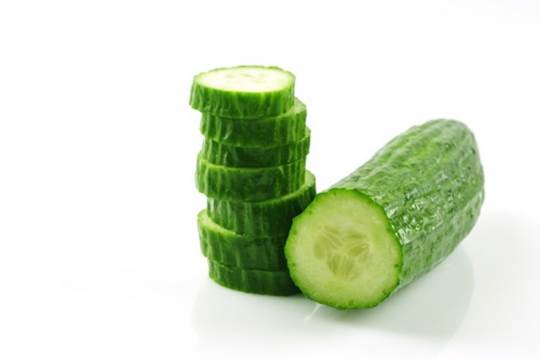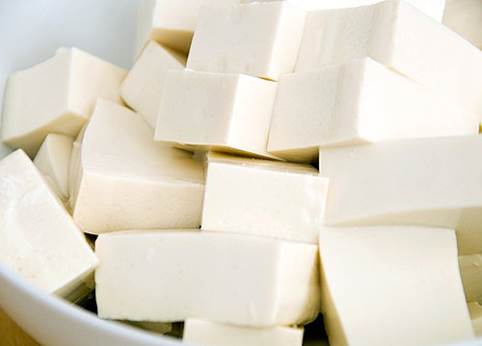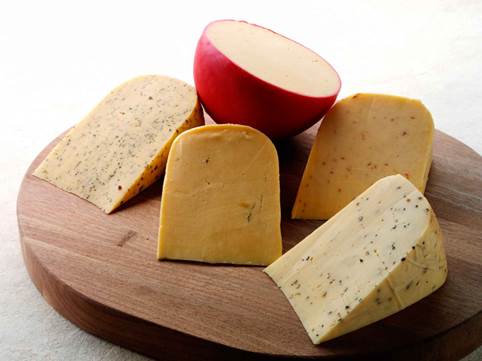Cucumber is good for pregnant women’s
health. The natural water in cucumber will prevent pregnant women from the risk
of dehydration during pregnancy. Besides, cucumber has plenty of potassium
which is important to the electrolytic process and helps they maintain the
stable blood pressure. Moreover, the vitamin K in cucumbers helps strengthen
pregnant women’s bone. In particular, the peel of cucumbers is a wonderful
source of fiber which helps pregnant women to get rid of constipation and hemorrhoids.
However, pregnant women shouldn’t eat
unpeeled cucumbers because in the market, cucumber is the kind of food that’s
often sprayed.
Additionally, pregnant women who eat lots
of cucumber can have flatulence, indigestion, belching, urine leaking… In some
cases, it can cause allergy and some symptoms like itch, mouth swelling…

Pregnant
women had better avoid eating unpeeled cucumbers.
8. Fish
Fish has lots of omega-3 fat. Like other seafood,
it provides essential nutrients to pregnant women and supports the development
of the infant. In the first stage of pregnancy, eating fish is good for
pregnant woman’s health because it reduces the risk of premature birth and low
birth-weight and having postpartum depression. On the other hand, pregnant
women who eat lots of fish can improve baby’s intelligence.
Nonetheless, pregnant women should avoid
raw or uncooked seafood, because it contains lots of bacteria and parasites
including salmonella, toxoplasmosis, fluke…that are harmful to your health.
Freezing the food before it’s cooked can emit the parasites and it’s safe for
use.
Additionally, pregnant women should limit
eating fish that has a high level of mercury, such as shark, swordfish, king
mackerel, snakehead fish, orca, sawfish and grouper.
9. Tofu
Some pregnant women are afraid of the fact
that eating lots of tofu will affect the sexual development of the fetus. The
truth is tofu is very good for pregnant women’s health as long as you eat a sensible
amount of it.

Pregnant
women should eat 3-4 tofu meals a week.
Calcium in tofu is good for pregnant women,
especially for the fetus, because it help build bones and teeth. The iron in
tofu can prevent premature and low-weighed birth. Besides, tofu also helps
reduce bad cholesterol and maintain the content of healthy lipid in pregnancy.
However, pregnant women shouldn’t eat too
much tofu or drink too much soy milk because the trypsin inhibitor in tofu and
soy can affect protein digestion and cause pancreatic disorder, contractions,
gastrointestinal disorder including nausea, diarrhea, or constipation.
Also take notice of the place that you buy
tofu and soy to prevent buying tofu that has a high level of aluminum and
plaster… poisoning the nervous system and kidney of the mother and the fetus.
Pregnant women should eat about 3-4 tofu
meals a week. To soy, drinking a small glass of soy milk (about 200ml) is sensible.
10. Kiwi
Kiwi has lots of fiber, so when eating it,
pregnant women are not only prevented from constipation, but also emit toxic
products from the colon and reduce the risk of having stomach and intestive
issues. Vitamin C in kiwi helps absorb iron, and prevents the pregnant and the
fetus from anaemia. Magnesium helps the pregnant improve bones, brain and
immune system. By having a kiwi a day, the pregnant is provided enough vitamin
E that is good for heart.
However, the kiwi can cause allergy to
pregnant women. It could be nausea, vomiting and other allergic effects, so
pregnant women should be careful before eating it.
11. Cheese
Although cheese has lots of nutrients,
pregnant women should avoid soft cheeses because they contain harmful bacteria
like Listeria. Nevertheless, if you’re a fan of cheeses and can’t bear eating
them, you can use hard cheese instead. Remember to heat the cheese up before
eating to kill the bacteria.

Remember
to heat the cheese up before eating to kill the bacteria.
12. Coffee,
caffeine water
Coffee and caffeine drinks are in
favorites. But when you’re pregnant, those high-caffeine drinks have many
chances causing premature birth, low birth weight or miscarriage.
Nonetheless, there’s good news for pregnant
women that new principles about nutrition have claimed that pregnant women
could drink up to 3 cups of coffee, 4 cups of tea or 4 cans of coke a day. Of
course, the amount of coffee that is absorbed must be inder 300mg/day.
Pregnant women should drink coffee that is
low in caffeine. Similarly, pregnant women should drink weak tea an hour after
meals; do not drink when hungry, and should choose natural tea that is less
processed.